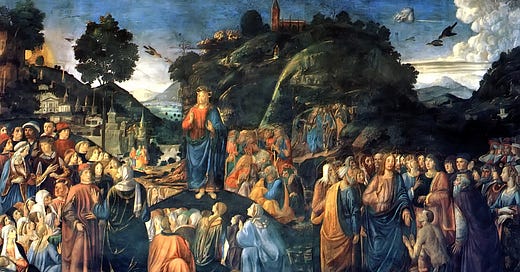Blessings and Curses
Reflecting on the Fourth Sunday after the Epiphany: Three Days after Sunday (Year A)
Scripture
Psalter: Psalm 37:1-17
Old Testament: Ruth 3:1-13; 4:13-22
Gospel: Luke 6:17-26
___
Prayer
God our deliverer, you walk with the meek and the poor, the compassionate and those who mourn, and you call us to walk humbly with you. When we are foolish, be our wisdom; when we are weak, be our strength; that, as we learn to do justice and to love mercy, yo…
Keep reading with a 7-day free trial
Subscribe to Faith Seeking Understanding to keep reading this post and get 7 days of free access to the full post archives.




